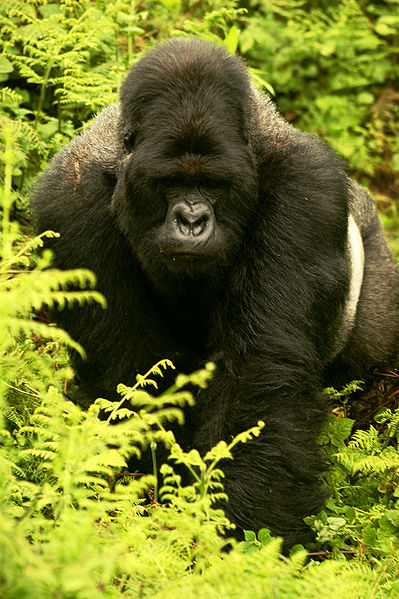
Gorillas versus charcoal update: Biomass project reaches halfway point
Nov 4, 2009 - John Platt - Scitific American
 What do comic books, a reggae band and alternative fuels have in common? They are all part of a project to help save critically endangered mountain gorillas (Gorilla beringei beringei) in the Democratic Republic of the Congo (DRC). What do comic books, a reggae band and alternative fuels have in common? They are all part of a project to help save critically endangered mountain gorillas (Gorilla beringei beringei) in the Democratic Republic of the Congo (DRC).
Last April, I wrote about a project in the DRC that aimed to save mountain gorillas in Virunga National Park, which is home to half of the world's 720 or so members of the species, by convincing locals to stop using forest-destroying charcoal as fuel. That project has now reached its halfway point, but it still has a way to go.
According to the official Web site of Virunga National Park, "charcoal stands as the single biggest threat to the mountain gorillas and other flora and fauna in the park." Criminal gangs chop down trees in Virunga, which they then to burn to form charcoal; they kill any human, gorilla or other animal that gets in their way.
Locally, there are few readily available fuel alternatives to charcoal, so earlier this year a project began through the Africa Conservation Fund to bring 1,000 biomass pressing machines to the region. The machines, which not only create sustainable, alternative fuel but are providing much-needed local employment, use materials like sawdust, rice husks, coffee and tea residues, sorghum, leaves, and grass to create a burnable briquette that costs less than half the price of charcoal.
But shifting the public away from charcoal has been a challenge. "Cultural barriers run high, and people just don't like to change the way they cook," wrote Emmanuel de Merode, chief warden of Virunga National Park for the Congolese Wildlife Authority. "Briquettes do produce more smoke, which people hate, but they are also much cheaper. Old habits die hard, and it's not an easy sell."
The project currently has 500 of the planned biomass presses in use, and employs 3,000 people in the briquette-making process. But although they are producing 4,000 sacks of briquettes a month (about 130 daily), they are only selling an average of 10 sacks a day.
In order to inspire greater demand, the team at Virunga has started distributing a two-page comic strip, printed in Swahili, that illustrates the benefits of heating and cooking with biomass briquettes instead of charcoal. Other elements of their marketing campaign include billboards and leaflets as well as a reggae band that travels the countryside singing about briquettes and mountain gorillas.
Meanwhile, the team is also asking for other marketing ideas that could help popularize the use of the alternative fuel.

|
